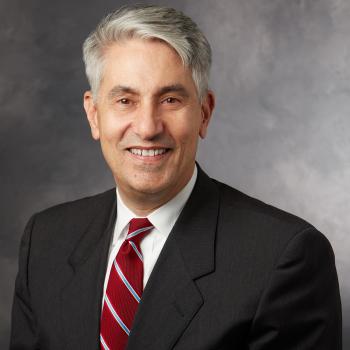Current Research and Scholarly Interests
Dr. Longaker earned his undergraduate degree at Michigan State University, (he played varsity basketball & was a member of the 1979 NCAA Men’s Basketball Championship Team) and his medical degree at Harvard Medical School. He completed his general surgical residency at the University of California, San Francisco, a residency in Plastic Surgery at NYU & a craniofacial fellowship at UCLA. The majority of his research training took place as a Post-Doctoral Research Fellow in the Fetal Treatment Program under Dr. Mike Harrison & in the laboratory of Dr. Michael Banda in Radiobiology, both at UCSF. In December 2003, Dr. Longaker earned his M.B.A. from University of California Berkeley and Columbia University, in the inaugural class of their combined program and was elected into Columbia University's Beta Gamma Sigma Honor Society.
Michael Longaker’s research experience focuses on wound repair and fibrosis, with specific applications to the different systems between fetal and post-natal wound healing. His research has opened up two fields: fibroblasts heterogeneity / regeneration during wound repair and skeletal stem cells. He made the discovery that embryos heal without a scar early in gestation and transition to scarring late in gestation a while as a post-doc at UCSF. Over the past three decades he has worked out how mechanical forces promote scarring in adult animals. His laboratory identified the fibroblast lineage responsible for scarring in mouse dorsal wounds (Science, 2015). Most recently, he achieved true regeneration without scarring during adult mouse wound healing and has worked out mechanisms through which this occurs (Science, 2021: Cell Stem Cell, 2022; Science 2023; Cell Stem Cell, 2023).
His laboratory identified mouse skeletal stem cells in 2015 (Cell) and human skeletal stem cells in 2018 (Cell). He would show how skeletal stem cells are expanded during fracture repair (PNAS, 2015), are impacted by diabetes (Science Translational Medicine, 2017) and can be guided toward cartilage regeneration following microfracture surgery (Nature Medicine, 2020). He has shown that skeletal stem cells in the jaw can be activated by mechanical forces and revert back to a cranial neural crest fate during jaw regeneration (Nature, 2018). Most recently, he has shown that osteoporotic fractures can be rescued with local therapy to heal in a youthful like manner (Nature, 2021).
He is a member Association for Academic Surgeons, the Society of University Surgeons, American Surgical Association and American Society for Clinical Investigation, the Association of American Physicians, the National Academy of Medicine. Dr. Longaker is the recipient of the prestigious Flance-Karl Award and the Medallion for Scientific Achievement from the American Surgical Association, the Lifetime Achievement Award from the Society of University of Surgeons, the recipient of the American College of Surgeons, Surgical Forum dedication in 2015. He served as Treasurer and subsequently President for the Society of University Surgeons. He has published over 1400 publications and has numerous federal grants to support his research.
He is an inventor on over 100 issued or applied for patents and patent applications. He has also funded several venture-backed start-up companies, including Neodyne Biosciences (www.neodynebio.com) and Arresto Biosciences, which was acquired by Gilead (NASDAQ:GILD) in January 2011. He is a founding partner of Tautona Group (www.tautonagroup.com), an early-stage life science fund that has created novel biomedical technologies that have been sold to industry leading companies, such as Allergan (NYSE:AGN), Novadaq (NASDAQ:NVDQ), and Acelity/KCI (San Antonio, TX).


